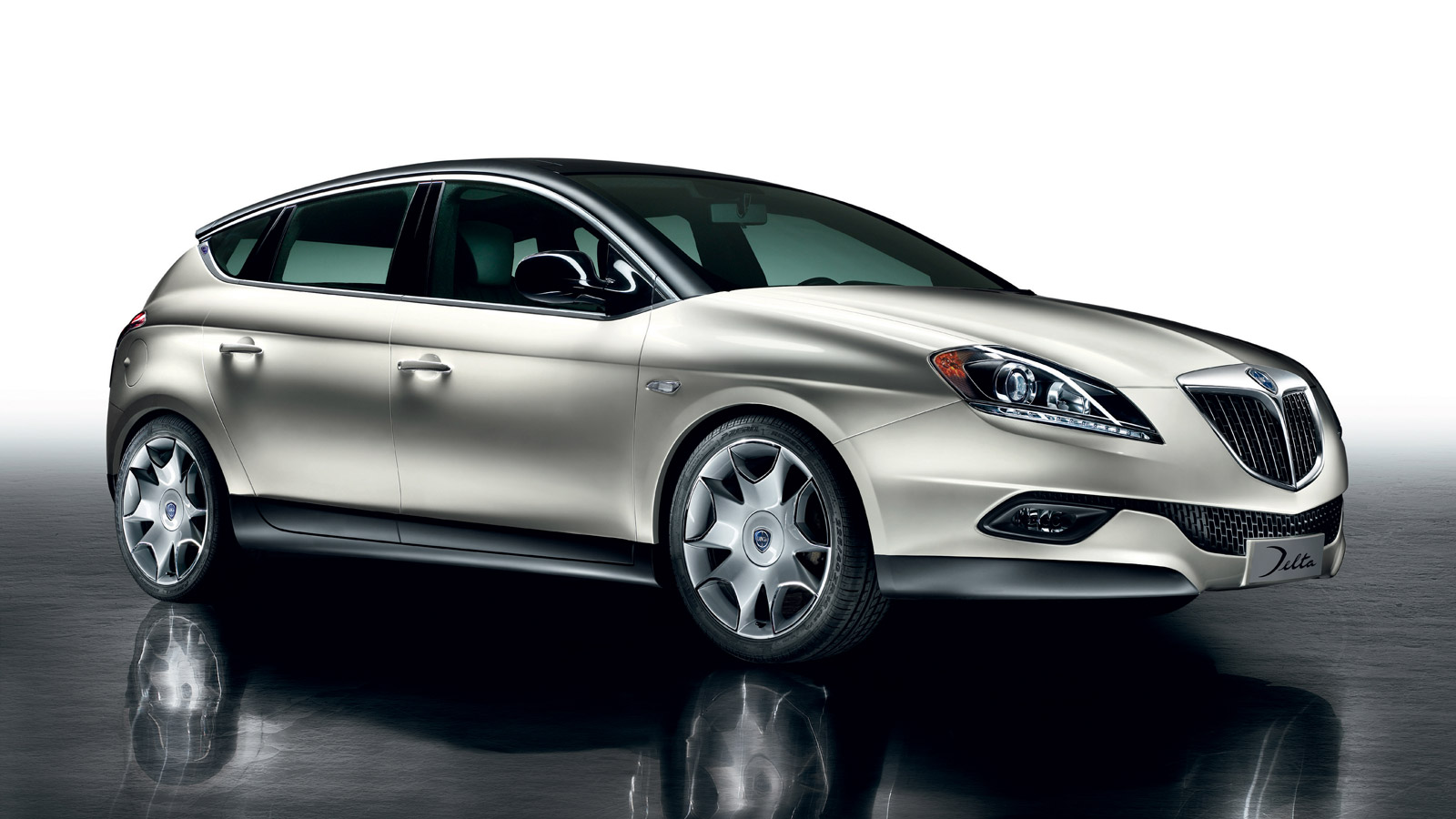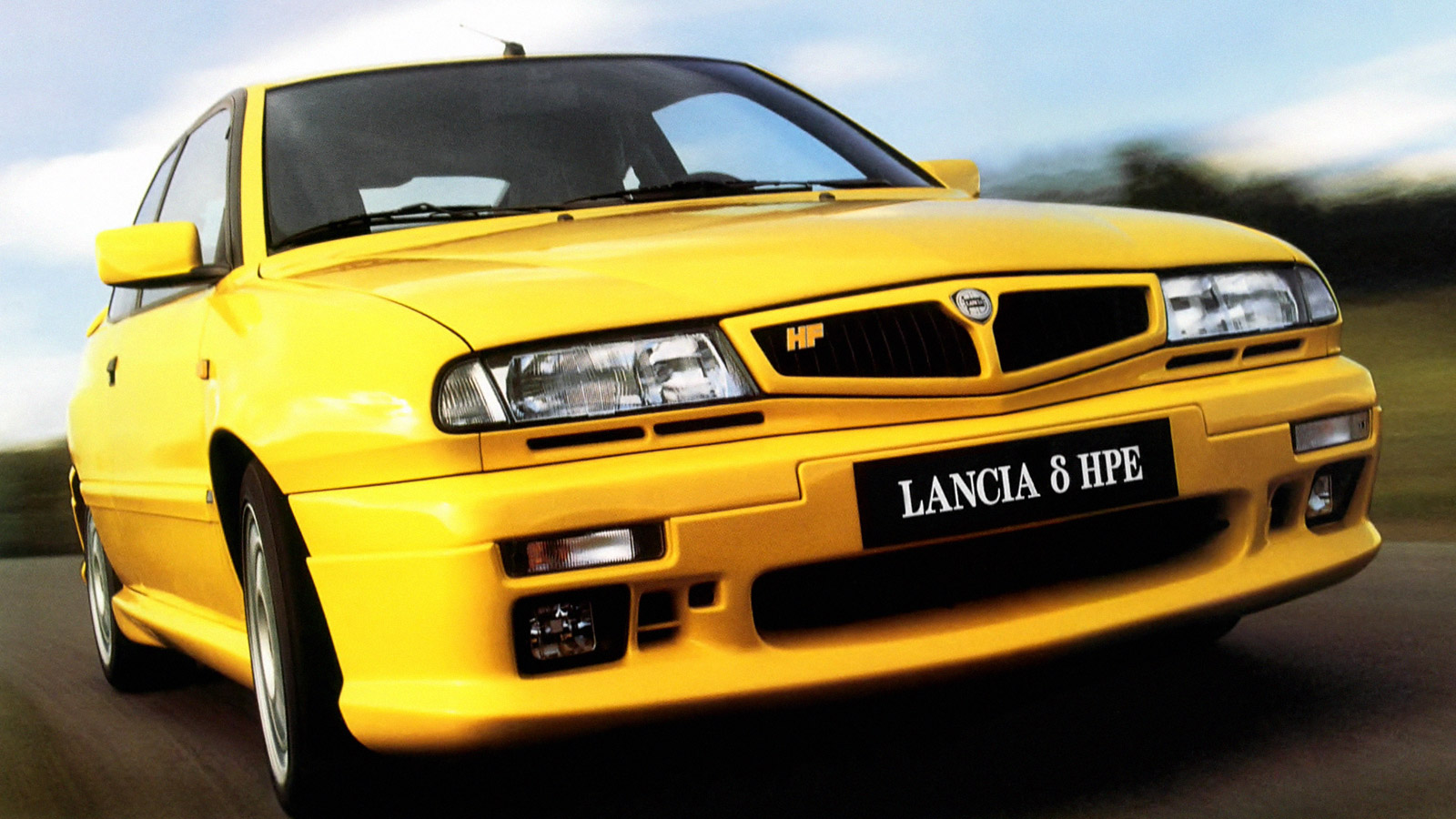Lancia Will Bring Back The Delta And I'm Asking Us All To Temper Our Expectations
The Delta may be coming back, but the Lancia you loved disappeared a long time ago.
Among Stellantis' gaggle of misfit brands, Lancia figures to make out pretty well in the forthcoming EV age. The marque sells just one car, the Ypsilon, in Italy alone and it's done surprisingly well for itself. Lancia's range will grow to at least two cars in the coming years — one of which apparently will be an all-electric Delta.
Yes, the Delta is returning, according to Lancia's new CEO Luca Napolitano. Napolitano shared with Corriere della Sera that the brand's most recognizable nameplate will reemerge later this decade on an electric car. What's more, we're promised this EV should be a "true Delta." Before you get too excited, though, the CEO's definition of what that means is disappointingly vague:
"Everyone wants Delta and it can't be missing from our plans. It will return and it will be a true Delta: an exciting car, a manifesto of progress and technology. And obviously it will be electric."
There will be a new Ypsilon in 2024, likely before the Delta's return. It won't be strictly electric — Napolitano says the brand won't completely cut out internal combustion engines until 2026. That means this new Delta could be four years out, but that's hard to guess as a specific timeline isn't detailed.
Of course I'd love to believe, as I'm sure we all would, that the new Delta will be the spiritual successor to the four-eyed rally demon everyone cherishes. Unfortunately, history gives us little reason to expect that.
The Delta continued long after the HF Integrale series that still makes enthusiasts weak in the knees. There was the second-gen Delta seen at the top of this post, produced from 1993 to 1999. That one received a warm-ish HF version too, but it was strictly front-wheel drive and nobody ever brings it up. I kind of want one, if for no other reason than to tell people I have a Delta. I'd delight in the surprise and jealousy in their eyes, waiting until the last possible moment to reveal it isn't that Delta.
Anyway, the nameplate wasn't used again until 2008, when the Delta was revived using the Fiat Bravo's platform. That generation persisted until 2014. I've always thought the final model was stylish and deserved more recognition for it. This Delta was even sold as a Chrysler in the U.K. and Ireland during one of FCA's questionable early cross-branding experiments.

I mention these less-desirable Deltas to highlight that this car hasn't been the four-wheel-drive, all-terrain bulldog people know it as for almost three decades now. Lancia today is a company that sells upmarket Fiat 500s to the sort of discerning customer for whom a Fiat 500 isn't distinctive enough. The new Delta has more justification to be a cushy, fancy crossover than it does a terror. It'll also likely share bones with a new Alfa Romeo and DS, which presents another reason to temper expectations.
And that's fine! Lancia is a beloved, historic brand, and it'd be great to see it succeed again in whatever way it can — even if it's not quite in the same way that we nerds measure success. Let Subaru, Ford and Volkswagen bring the rally goods, and let Lancia be weird.
